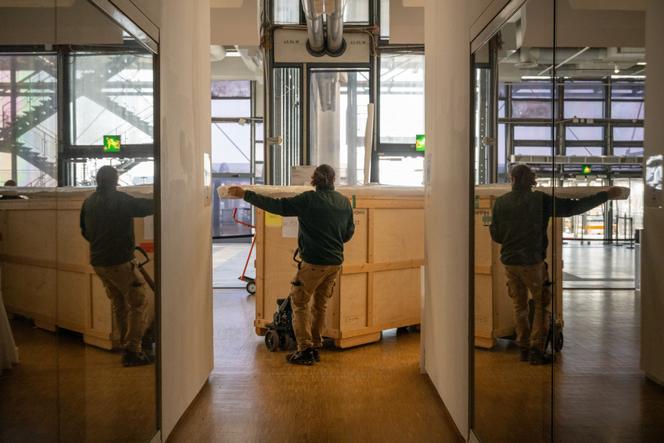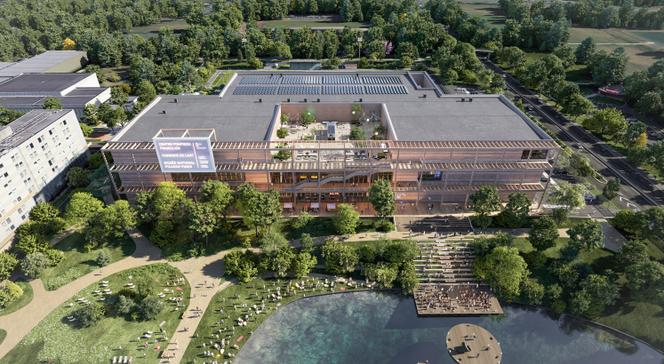Ballet of boxes and logistical challenges at the Centre Pompidou


It seems a long time ago that the Musée National d'Art Moderne moved from the Palais de Tokyo to the brand-new Centre Pompidou in 1977. At the time, 17,000 works were transported by truck, practically in a straight line between the two buildings. This time, in the context of the complete closure of the center from the end of 2025 to 2030 for renovations, some 150,000 works will eventually join a single reserve of 30,000 square meters in Massy (Essonne), the future Centre Pompidou Francilien-Fabrique de l'art, which is due to be delivered in the fall of 2026.

At the beginning of May, the galleries on the first and top floors of the center are still buzzing with visits to the latest temporary exhibitions, before the final one, the major retrospective of German photographer Wolfgang Tillmans scheduled for this summer in the spaces of the BPI (Public Information Library) emptied of its books. A different atmosphere prevails on levels 4 and 5, respectively devoted to the contemporary art and modern art collections of the national museum and closed since mid-March. One is surprised by the presence of ping-pong tables in the central bay of the 5th floor, which seems all the larger because it is largely emptied of its works. "We always use them as work tables for exhibition setups, they are the most practical: they are big, they fold, they are on wheels, they fit in the elevators," explains Céline Makragic, one of the two collection officers on this floor.
You have 79.57% of this article left to read. The rest is reserved for subscribers.
Le Monde




